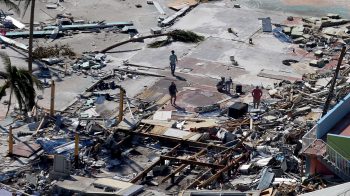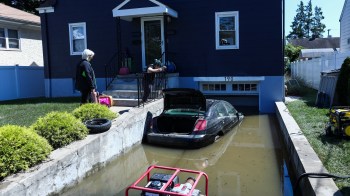Insurance rates going down
Share Now on:
Insurance rates going down
TEXT OF INTERVIEW
KAI RYSSDAL: As Republicans learned this week, politics can be a risky business. Many in the GOP probably wish there was something called election insurance. For the rest of us, you know the ones with car, home and life insurance, rates are actually going down. Liam Pleven has been writing about that for the Wall Street Journal. Liam if premiums are getting cheaper, does that mean that the world’s getting a little safer?
LIAM PLEVEN: Insurance prices are one way to measure how risky people at least perceive the world to be. In some places insurance rates are going down. Part of it is that the insurance business is cyclical, so it’s not always strictly in line with inflation by any means. And there are also other factors such as when a big disaster occurs, whether that’s an event like 9/11 or a natural disaster like Hurricane Katrina. In some cases that leads people to conclude that the risks are greater and so insurance prices can go up.
RYSSDAL: It sort of becomes a self-fulfilling prophecy?
PLEVEN: Insurance is one of these products where the people who are selling it don’t really know — they just try to get a good estimate of what the potential losses might be, but no one really knows for sure.
RYSSDAL: Let’s talk about some of the reasons. I mean are we driving safer, we’re obviously taking better care of ourselves or at least we’re trying to, so maybe life insurance is less expensive? I mean are there some clear causal factors here?
PLEVEN: There are a number of causal factors that suggest that again risks are declining in some specific areas. People are living longer and life expectancy of Americans has been rising for a long time but the life insurance industry incorporates that information on an ongoing basis and, if people are living longer, for certain types of life insurance, that means the risk of a huge payout diminishes over time. Car insurance claims have actually been declining in recent years and again that indicates that in at least that specific kind of way, it’s getting less risky.
RYSSDAL: Let me get a little bit further afield here, down into some of the less well-known areas of insurance –workers comp you talk about a little bit in your piece.
PLEVEN: Workers compensation insurance is obviously intended to help guard against the threat of injury to employees and workplaces have, by some measures, been getting safer over the years. So that, for instance, if the risk of somebody getting an injury at work goes down that can lead to fewer claims and if there are fewer claims that can in turn lead to lower rates for workers compensation insurance.
RYSSDAL: You know we have to remember that insurance is obviously a business and I was struck the other day that Warren Buffett’s company, Berkshire Hathaway, which holds a big insurance company made a whole lot of money because they weren’t paying out a whole lot of claims this year.
PLEVEN: Well, one of the things that Berkshire Hathaway, Warren Buffett’s company sells is catastrophe reinsurance. And since there were no hurricanes that have yet struck US soil this year, the catastrophe losses have been much lower and so Berkshire Hathaway and other insurers as well, that’s one of the reasons why they earned a lot more net income in the 3rd Quarter of this year than they did in the 3rd Quarter of last year.
RYSSDAL: Liam Pleven is a reporter for the Wall Street Journal. Liam thanks so much for your time.
PLEVEN: Thank you for having me.
There’s a lot happening in the world. Through it all, Marketplace is here for you.
You rely on Marketplace to break down the world’s events and tell you how it affects you in a fact-based, approachable way. We rely on your financial support to keep making that possible.
Your donation today powers the independent journalism that you rely on. For just $5/month, you can help sustain Marketplace so we can keep reporting on the things that matter to you.


















